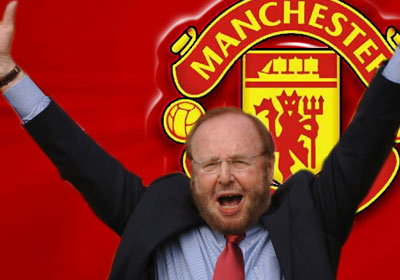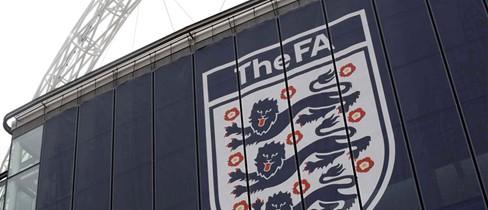By David Gold at Westminster in London
July 29 – MPs today threatened to legislate in an attempt to force English football to make a number of reforms, including the introduction of a licensing system for professional clubs, if the Football Association (FA) was unable to do so, with MP Damian Collins telling football authorities that “doing nothing is not an option”.
In a report released today by the Culture, Media and Sport Select Committee following a six month inquiry into football governance, it is recommended that the FA should develop and introduce a licensing model for professional English football clubs to help curb excessive debt in the English game.
Total Premier League debt currently stands at £2.6 billion ($4.2 billion/€3 billion), with Championship clubs accumulating a net debt of £875 million ($1.4 billion/€1 billion) at the end of the 2009-10 season.
The Committee claimed that recent reforms made by the Premier League and Football League are insufficient to tackle the debt problem.
Whilst noting that UEFA’s financial fair play rules, which are being phased in over the coming years and require clubs to break even in the long term, appear likely to have a positive impact on spending in the Premier League, the committee believe that this will not be sufficient to address the debt issue.
The report stated: “The FA should take the lead in ensuring that consistency of regulation is a priority for the English game.
“While we acknowledge that financial regulations have been tightened of late…their rules often appear to be in response to events rather than being proactive.
“It is right that clubs going into administration should be deducted penalty points, but it is important that the FA adopts more effective pre-emptive measures that anticipate events rather than simply follow.
“We recommend the introduction of a formal licensing model imposed rigorously and consistently throughout professional English football.
“The model should both review performance and promote sustainable forward-looking business plans.”
Licensing models from Europe show that such a system can work.
Germany has a model in which its football association can expel clubs from the league if they fail to fulfil the licensing requirements, which include providing financial statements to demonstrate a club’s economic stability.
France also has a body, the DNCG, which has the power to revoke a club’s licence or relegate them if they fail to meet particular financial criteria, and have often demoted teams in the past.
In addition, Spain’s football authorities have recently voted to adopt a new licensing system, which gives them similar powers to control the expenditure of teams in La Liga, whose problems are even graver than those of their English counterparts, with six teams in the top flight currently in administration.
 The Committee also want to end the practise of leveraged buyouts, the most prominent of which was the takeover of Manchester United by the Glazer family, who borrowed the money to buy the club through using them as an asset.
The Committee also want to end the practise of leveraged buyouts, the most prominent of which was the takeover of Manchester United by the Glazer family, who borrowed the money to buy the club through using them as an asset.
The report also recommends the abolition of the “football creditors rule” if football authorities fail to take such a step themselves.
The rule ensures preferential treatment for football creditors when a club goes into administration, meaning that those outside of football who are owed money by clubs in serious financial difficulty receive it last.
The report said that the rule “epitomises the extent to which financial priorities are being distorted” and David Gill, chief executive of Manchester United and FA board member, has admitted in the past in evidence that the rule has “had its day”.
Effectively, it means that players and clubs will receive money owed from football teams in administration as a priority rather than small local businesses or contractors, some of whom may be forced into liquidation as a result, as happened with Portsmouth FC in 2010.
The Committee noted that “the FA, leagues and clubs all appeared defensive and uncomfortable about the rule” in their recommendations for reform to the national game.
“It represents a ‘post facto’ preferential treatment of creditors that would be illegal in the run up to the insolvency of any business,” the report said.
Fundamental to the reforms suggested is for the FA to have increased powers in order to be able to carry out its responsibilities.
To achieve this, the committee wants to reform the FA board, bringing in two more executive members from the association, and reduce the number of professional game representatives from the Premier League and Football League to two, as well as to reduce the average length of tenure that members of the FA council can serve for.
These reforms would strengthen the FA’s ability to take crucial decisions by physically increasing their power in order to overcome what former chief executive Ian Watmore described as vested interests blocking changes being made.
The FA has often been accused of failing to get its house in order in the past and of being divided, but taking questions from the media, Collins suggested that he believed they could make the necessary changes this time because their division was as much structural as it was to do with personnel.
By reforming the FA board in the manner suggested, they could take their role as the ultimate governing body for English football.
Though set up in the aftermath of England’s disastrous 2010 World Cup campaign, the Committee steered clear of direct recommendations for footballing authorities to improve the national team’s performance, such as a winter break, instead preferring to give the FA the power to make any necessary changes themselves.
Youth football was addressed in the report, with the committee urging the FA, Premier League and Football League to work together to develop young English talent.
The Select Committee also want football authorities to ensure that robust ownership rules are brought in to ensure full transparency with regards to who owns particular clubs in the wake of a number of criticisms of the “fit and proper persons” rules, which currently exist.
John Whittingdale, the chairman of the Committee, said that the Government could take action to enforce changes necessary if the authorities within the game failed to make the reforms suggested in the report.
The report continued: “Almost all of our recommendations could be achieved without legislation, through cooperation and agreement between the football authorities, and we urge them to respond positively with an agreed strategy and timetable for change.
“Legislation should be considered only as a last resort in the absence of substantive progress.”
Contact the writer of this story at zib.l1734861619labto1734861619ofdlr1734861619owedi1734861619sni@d1734861619log.d1734861619ivad1734861619
Related stories
June 2011: Exclusive – Radical overhaul needed to improve FA standing in world football claims Mike Lee

